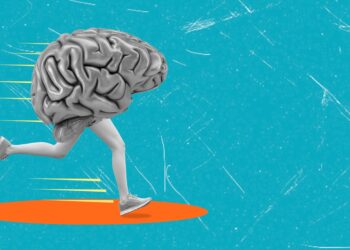The COVID-19 pandemic has not only had devastating effects on physical health and mortality but has touched every aspect of people’s well-being, with far-reaching consequences for how we live and work, according to a new study by the OECD.
COVID-19 and well-being: life in the pandemic says the virus caused a 16% increase in the average number of deaths across 33 OECD countries between March 2020 and early May 2021, compared with same period over the previous four years. Over the same time frame, survey data in the report reveal rising levels of depression or anxiety and a growing sense among many people of loneliness and of feeling disconnected from society.
Government support helped to sustain average household income levels in 2020 and stemmed the tide of job losses, even as average hours worked fell sharply. Although job retention schemes offered workers some protection, 14% of workers in 19 European OECD countries felt it was “likely they would lose their job” within three months, and nearly 1 in 3 people in 25 OECD countries reported financial difficulties.
The report says experiences of the pandemic have varied widely depending on age, gender and ethnicity, as well as on the type of job people do and on their level of pay and skills. The crisis also aggravated existing social, economic and environmental challenges.
In those countries with available data, workers from ethnic minorities have been more likely to lose their jobs during the pandemic. Mental health deteriorated for almost all population groups on average in 2020 but gaps in mental health by race and ethnicity are also visible. COVID-19 mortality rates for some ethnic minority communities have been more than twice those of other groups.
Younger adults experienced some of the largest declines in mental health, social connectedness and life satisfaction in 2020 and 2021, as well as facing job disruption and insecurity.
Launched on the first anniversary of the new OECD Centre for Well-being, Inclusion, Sustainability and Equal Opportunity (WISE), the report offers a primer for OECD recommendations on well-being. It assesses the impact of the pandemic across the 11 dimensions identified in the OECD’s Well-being Framework – income and wealth; work and job quality; housing; health; knowledge and skills; environment; subjective well-being; safety; work-life balance; social connections; and civil engagement. It features data on inclusion and equality of opportunity, and also considers how the stocks of economic, human, social and environmental resources that sustain well-being have fared.
The report argues that as governments move from emergency support to stimulating the recovery, they need to refocus their action on what matters most to people’s well-being.
A key objective must be to increase the job and financial security of households, and particularly those most affected by the crisis – with a focus on the most vulnerable, on youth, women and the low skilled. Addressing the burden of poor physical and mental health and a cross-government approach to raising the well-being of the most disadvantaged children and youth must also be prioritised. The report also stresses that actions to raise living standards and equality of opportunity must take place within the context of greening the economy: the climate and biodiversity crises, like the pandemic, require a coordinated response across public policy.
A well-being approach, the report explains, looks at government objectives as interconnected goals, focusing on how different policies can complement each other. Such an approach encourages decision-making that simultaneously considers impacts on current well-being, inclusion, and the sustainability of well-being over time. For instance, improving long-term economic opportunities through raising child well-being, or aligning efforts to combat climate change with social and economic objectives by increasing employment and mobility for people and places left behind.
Natural, human and social capital will need rebuilding after the crisis, the report adds. Reducing inequalities in access to, and uptake of lifelong learning, for example, will help people – especially the disadvantaged – get high quality jobs by developing training programmes that address skills gaps and emphasise digital abilities.
Social capital – the norms, shared values and institutions that foster co-operation – has shaped communities’ responses to the pandemic. Data from across OECD countries shows that both trust in institutions and interpersonal trust influenced the effectiveness of pandemic containment. Although it has recently shown signs of weakening, institutional trust in 2020 in most OECD countries was at its highest since records began in 2006.
The report says reinforcing trust is key to reconnecting people to their societies, and to the institutions that are meant to support them. By doing so, the well-being of citizens is improved both today and in a post-pandemic future.
(Courtesy OECD)












